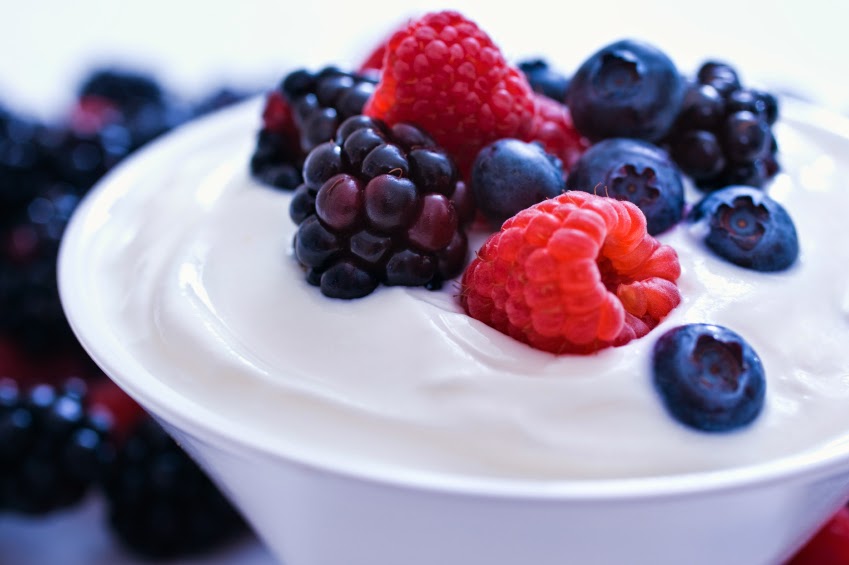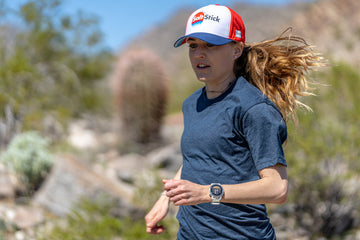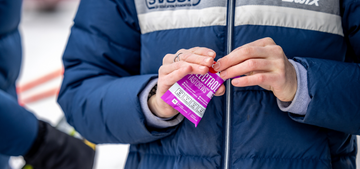
 Potassium is one of several crucial electrolytes that your body needs to function properly. As we mentioned in our “Why You Need Salt and Where to Get It” post, potassium is essential for muscle contraction, and it’s crucial for a properly functioning heart and kidneys. Low potassium levels can result in muscle cramps or fatigue, among other physical issues.
Potassium comes most famously in bananas (which is why they are a favorite fruit of runners). But you can also consume potassium in potatoes, tomatoes, avocados, fresh fruits (oranges, and strawberries), dried fruits (raisins, apricots, prunes, and dates), spinach, beans and peas.
Unfortunately, because the average Western diet is low in fruits and vegetables, most people only consume about half of their daily potassium needs. Set yourself up for success by starting your day with one of these breakfasts, each rich in potassium, as well as a variety of other electrolytes, vitamins and minerals.
1. Sweet potato hash with eggs
Sweet potatoes are a great all-around nutritional staple for endurance athletes. One large, cooked sweet potato (including the skin!) contains more than 850 milligrams of potassium, nearly twice that of a medium banana and about 30 percent more than a cup of coconut water. Sweet potatoes are a good source of starchy carbohydrates, and a medium potato also contains about a third of your daily requirement of vitamin C and more than four times your daily requirement of vitamin A.
Enjoy a sweet potato for breakfast in the form of savory hash browns. Pair it with a couple of boiled eggs for some healthy protein, and you’ve got a great way to start the day.
Ingredients
2 tablespoons olive oil or butter
1 cup chopped onions
Salt
Freshly ground black pepper
1 tablespoon chopped garlic
2 pounds sweet potatoes, peeled and grated
Directions
In a large skillet, heat the olive oil or butter at medium temperature. Add the onions. Season with salt and pepper. Saute the onions until soft, about 2 minutes. Add the garlic and sweet potatoes. Season with salt and pepper. Saute for about 10 to 15 minutes. Remove from the heat and serve warm.
Potassium is one of several crucial electrolytes that your body needs to function properly. As we mentioned in our “Why You Need Salt and Where to Get It” post, potassium is essential for muscle contraction, and it’s crucial for a properly functioning heart and kidneys. Low potassium levels can result in muscle cramps or fatigue, among other physical issues.
Potassium comes most famously in bananas (which is why they are a favorite fruit of runners). But you can also consume potassium in potatoes, tomatoes, avocados, fresh fruits (oranges, and strawberries), dried fruits (raisins, apricots, prunes, and dates), spinach, beans and peas.
Unfortunately, because the average Western diet is low in fruits and vegetables, most people only consume about half of their daily potassium needs. Set yourself up for success by starting your day with one of these breakfasts, each rich in potassium, as well as a variety of other electrolytes, vitamins and minerals.
1. Sweet potato hash with eggs
Sweet potatoes are a great all-around nutritional staple for endurance athletes. One large, cooked sweet potato (including the skin!) contains more than 850 milligrams of potassium, nearly twice that of a medium banana and about 30 percent more than a cup of coconut water. Sweet potatoes are a good source of starchy carbohydrates, and a medium potato also contains about a third of your daily requirement of vitamin C and more than four times your daily requirement of vitamin A.
Enjoy a sweet potato for breakfast in the form of savory hash browns. Pair it with a couple of boiled eggs for some healthy protein, and you’ve got a great way to start the day.
Ingredients
2 tablespoons olive oil or butter
1 cup chopped onions
Salt
Freshly ground black pepper
1 tablespoon chopped garlic
2 pounds sweet potatoes, peeled and grated
Directions
In a large skillet, heat the olive oil or butter at medium temperature. Add the onions. Season with salt and pepper. Saute the onions until soft, about 2 minutes. Add the garlic and sweet potatoes. Season with salt and pepper. Saute for about 10 to 15 minutes. Remove from the heat and serve warm.
 2. Fruit and Greek yogurt
Fruit is hands-down one of the best natural sources of potassium. Orange and yellow fruits (such as mangos, oranges, papayas and bananas) contain the highest amounts of the electrolyte, while darker fruits (such as berries or cherries) contain lower amounts. However, these dark fruits are also excellent sources of magnesium and calcium, as well as a plethora of antioxidants and phytochemicals that help repair the body after a hard workout. The best way to ensure maximum nutrition is to consume as many different colors of fruit as possible throughout the week. Pair your fruit with some high-protein Greek yogurt for a calcium and protein boost as well!
Ingredients
Fruit: We find that peaches, berries or mangoes go best with Greek yogurt.
Yogurt: When choosing your yogurt make sure to pick a brand with no added sugar or artificial sweetener. Let the fruit add all the flavor!
¼ teaspoon of cinnamon
Directions
Combine all ingredients in a bowl and mix.
3. Berry/banana shake
Another great way to consume fruit is in a post-workout or breakfast smoothie. Prep time is minimal, as you don’t even have to cut the fruit into bite-size pieces if you have a strong-enough blender. Any variety of fruits will do, and if you change the ingredients each day, you’ll be closer to consuming as many different nutrients as possible throughout the week. Our favorite recipe (below) can serve as a template.
Ingredients
1 cup frozen mixed berries
1 frozen ripe banana
1/2 cup low-fat vanilla yogurt
1/4 cup orange juice
Directions
Combine all ingredients together in a blender and puree until smooth.
4. Applesauce and protein powder
Bananas are often touted for their potassium content, but apples can hold their own, with one medium apple containing about 200 grams of potassium. Apples are also a source of Vitamin C, as well as several B vitamins, including B6, riboflavin and thiamine.
If breakfast equates with a post-workout meal, try a bowl of applesauce and protein powder for a great mix of simple, fast-absorbing carbohydrates and protein. Be careful with this meal at other times, though. Applesauce is pretty high in sugar and can cause an insulin spike if you consume it outside of the 30-minute post-workout window.
Ingredients:
1 cup of applesauce, store-bought or homemade
2 tablespoons of protein powder
Directions
Combine all ingredients in a bowl and enjoy.
2. Fruit and Greek yogurt
Fruit is hands-down one of the best natural sources of potassium. Orange and yellow fruits (such as mangos, oranges, papayas and bananas) contain the highest amounts of the electrolyte, while darker fruits (such as berries or cherries) contain lower amounts. However, these dark fruits are also excellent sources of magnesium and calcium, as well as a plethora of antioxidants and phytochemicals that help repair the body after a hard workout. The best way to ensure maximum nutrition is to consume as many different colors of fruit as possible throughout the week. Pair your fruit with some high-protein Greek yogurt for a calcium and protein boost as well!
Ingredients
Fruit: We find that peaches, berries or mangoes go best with Greek yogurt.
Yogurt: When choosing your yogurt make sure to pick a brand with no added sugar or artificial sweetener. Let the fruit add all the flavor!
¼ teaspoon of cinnamon
Directions
Combine all ingredients in a bowl and mix.
3. Berry/banana shake
Another great way to consume fruit is in a post-workout or breakfast smoothie. Prep time is minimal, as you don’t even have to cut the fruit into bite-size pieces if you have a strong-enough blender. Any variety of fruits will do, and if you change the ingredients each day, you’ll be closer to consuming as many different nutrients as possible throughout the week. Our favorite recipe (below) can serve as a template.
Ingredients
1 cup frozen mixed berries
1 frozen ripe banana
1/2 cup low-fat vanilla yogurt
1/4 cup orange juice
Directions
Combine all ingredients together in a blender and puree until smooth.
4. Applesauce and protein powder
Bananas are often touted for their potassium content, but apples can hold their own, with one medium apple containing about 200 grams of potassium. Apples are also a source of Vitamin C, as well as several B vitamins, including B6, riboflavin and thiamine.
If breakfast equates with a post-workout meal, try a bowl of applesauce and protein powder for a great mix of simple, fast-absorbing carbohydrates and protein. Be careful with this meal at other times, though. Applesauce is pretty high in sugar and can cause an insulin spike if you consume it outside of the 30-minute post-workout window.
Ingredients:
1 cup of applesauce, store-bought or homemade
2 tablespoons of protein powder
Directions
Combine all ingredients in a bowl and enjoy.
 5. Green foods
Green foods are some of the most nutritionally-dense foods in existence. Kale, for instance, is an excellent source of vitamin B6, dietary fiber, calcium, potassium, vitamin E, vitamin B2, iron, magnesium, vitamin B1, omega-3 fatty acids, phosphorus, protein, folate and niacin. Notice that list included calcium, magnesium and potassium -- all key electrolytes. The nutritional spectrum of other green foods -- including avocados, spinach, collard greens and chard -- is similar.
There are many ways to incorporate green foods into your breakfast, including smoothies, breakfast salads and omelets. Adding 1 cup of chopped greens to the banana-berry smoothie will add a heaping dose of potassium and all the other nutrients listed above. Because we’ve already covered smoothies, we’d like to provide you a recipe for our favorite omelet. The eggs at a good amount of protein, keeping you full until lunchtime!
Ingredients
3 eggs
1/4 cup frozen spinach, torn into bite sized pieces
1/8 cup pine nuts, roughly chopped
1/8 cup onion, finely diced
1/4 green pepper, diced
1/4 cup broccoli floret
1 tablespoon butter
Directions
Sauté the onion and spinach for about 5 minutes. Set aside in a small bowl and then sauté the green pepper and broccoli for 5 minutes. In a small bowl, break 3 eggs and mix very well with a fork. Melt the butter in a frying pan, on medium high heat and then add the eggs. Very quickly add 2 tbsp spinach, some pine nuts 2 tsp onion, 2 tbsp green pepper, 2 tbsp broccoli. Let set for about 3-4 minutes. Flip over half the omelette and continue to cook for another 2 minutes. Repeat two more times. Serve warm.
Concluding:
We hope these dishes give you some ideas for creative and healthful meals. As part of a well-rounded diet, the nutrients in these dishes can help maximize training and racing energy. When electrolyte demands increase during heavier training or longer racing, don't forget that a single capsule of SaltStick Caps contains 63 mg of potassium, along with other electrolytes. This can effectively supplement a normal diet that may fall short when metabolic needs exceed normal intake.
5. Green foods
Green foods are some of the most nutritionally-dense foods in existence. Kale, for instance, is an excellent source of vitamin B6, dietary fiber, calcium, potassium, vitamin E, vitamin B2, iron, magnesium, vitamin B1, omega-3 fatty acids, phosphorus, protein, folate and niacin. Notice that list included calcium, magnesium and potassium -- all key electrolytes. The nutritional spectrum of other green foods -- including avocados, spinach, collard greens and chard -- is similar.
There are many ways to incorporate green foods into your breakfast, including smoothies, breakfast salads and omelets. Adding 1 cup of chopped greens to the banana-berry smoothie will add a heaping dose of potassium and all the other nutrients listed above. Because we’ve already covered smoothies, we’d like to provide you a recipe for our favorite omelet. The eggs at a good amount of protein, keeping you full until lunchtime!
Ingredients
3 eggs
1/4 cup frozen spinach, torn into bite sized pieces
1/8 cup pine nuts, roughly chopped
1/8 cup onion, finely diced
1/4 green pepper, diced
1/4 cup broccoli floret
1 tablespoon butter
Directions
Sauté the onion and spinach for about 5 minutes. Set aside in a small bowl and then sauté the green pepper and broccoli for 5 minutes. In a small bowl, break 3 eggs and mix very well with a fork. Melt the butter in a frying pan, on medium high heat and then add the eggs. Very quickly add 2 tbsp spinach, some pine nuts 2 tsp onion, 2 tbsp green pepper, 2 tbsp broccoli. Let set for about 3-4 minutes. Flip over half the omelette and continue to cook for another 2 minutes. Repeat two more times. Serve warm.
Concluding:
We hope these dishes give you some ideas for creative and healthful meals. As part of a well-rounded diet, the nutrients in these dishes can help maximize training and racing energy. When electrolyte demands increase during heavier training or longer racing, don't forget that a single capsule of SaltStick Caps contains 63 mg of potassium, along with other electrolytes. This can effectively supplement a normal diet that may fall short when metabolic needs exceed normal intake.
Tags:








